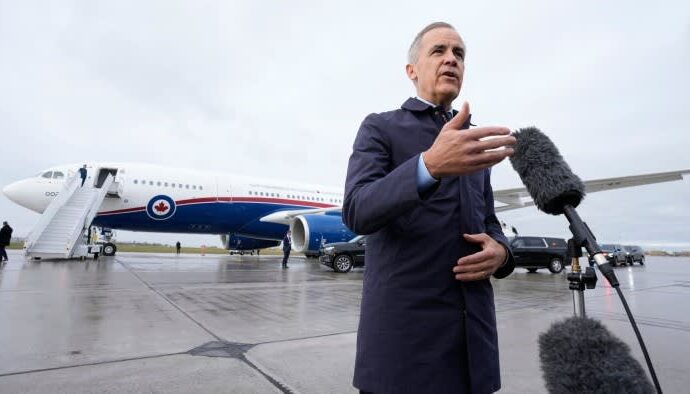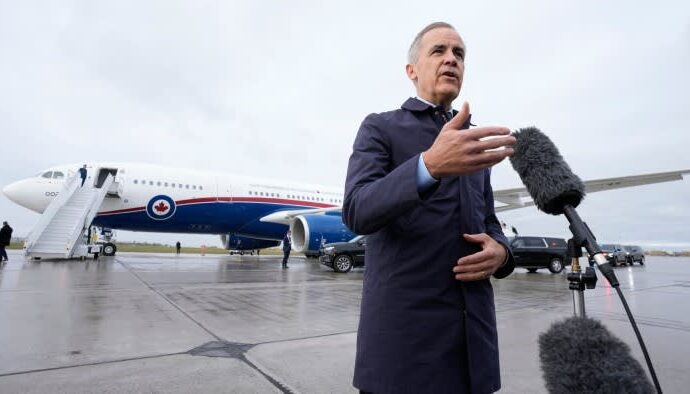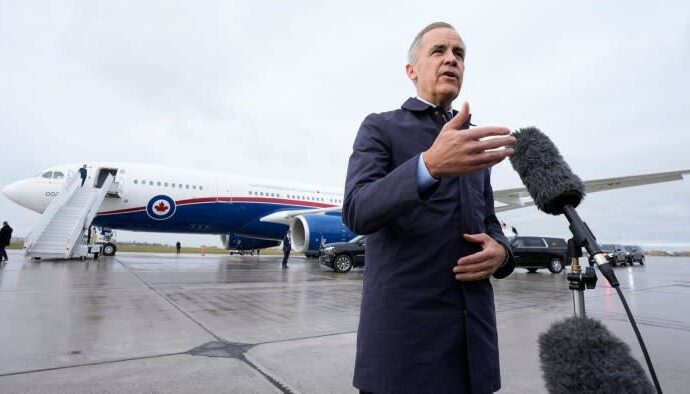Unlock the White House Watch newsletter for free
Your guide to what Trump’s second term means for Washington, business and the world
US and Chinese trade negotiators have agreed “a very positive framework” for Donald Trump and Xi Jinping’s meeting this week, US Treasury secretary Scott Bessent said, suggesting they will extend a trade war ceasefire due to expire next month.
Bessent, US trade representative Jamieson Greer and Chinese vice-premier He Lifeng on Sunday wrapped up two days of trade talks in Malaysia. “I would describe [the negotiations] as constructive, far-reaching, in-depth and giving us the ability to move forward and set the stage for the leaders’ meeting in a very positive framework,” Bessent said.
Asked if the two countries could extend the trade truce, which is set to expire on November 10, Bessent said: “I would say yes.” But he cautioned that on the American side, the final decision would be up to Trump.
The Treasury secretary said the negotiating teams had also discussed Chinese purchases of agricultural goods and were “looking forward to the two leaders confirming” that part of the deal. Trump has repeatedly said he wants China to buy US soyabeans.
Bessent’s comments came as Trump kicked off a trip to Asia, his first since returning to the White House, by signing regional trade and critical minerals deals.
Trump, who landed in Malaysia on Sunday morning to attend the Association of Southeast Asian Nations summit in Kuala Lumpur, first presided over the signing of a ceasefire agreement between Cambodia and Thailand. The neighbours were embroiled in a deadly border dispute this summer.
“Alongside the peace treaty, we are also signing a major trade deal with Cambodia and a very important critical minerals agreement with Thailand,” he said. “The United States will have robust commerce and co-operation transactions, lots of them, with both nations as long as they live in peace.”
The US also finalised trade and critical mineral deals with Malaysia on Sunday. All three countries should now face a tariff of 19 per cent, down from as high as 49 per cent.
Malaysia is the first stop of Trump’s weeklong tour before he flies to Japan to meet its new prime minister and heads to South Korea for a summit with Xi.
His Asia visit comes as US-China tensions have dramatically increased. Beijing this month announced sweeping export controls on rare earths, prompting Trump to threaten an extra 100 per cent tariff on Chinese goods from November 1 and raising the risk of a return to a full-blown trade war.
China has given no public signs it will roll back the export controls, which have sparked criticism from the US and its allies for their impact on global supply chains.
Beijing has defended its restrictions on rare earths, which are vital to the manufacture of fighter jets, electric vehicles and smartphones, by accusing Washington of putting Chinese companies on an export blacklist.
Other countries in the region will look to Trump’s visit for clarity on his Indo-Pacific policy.
While the president has imposed tariffs on countries across Asia as part of his effort to reduce US trade deficits, he has not elaborated on his strategy regarding security and foreign policy issues.
Trump arrived in Malaysia a day after he put an extra 10 per cent tariff on Canadian goods in response to a television advert that quoted Ronald Reagan opposing tariffs.
Canadian Prime Minister Mark Carney is also attending the Asean summit, but Trump said he had no plans to meet him.
Sanae Takaichi, the new Japanese prime minister who will also attend the Asean conference, wrote on X that she had spoken to Trump over the phone and had a “good and candid” conversation.
Trump will fly to Japan on Monday. He is expected to meet Takaichi, who on Friday announced that Japan would accelerate a planned increase in defence spending — a move Japanese officials hope will please Trump.
At the signing of the ceasefire agreement in Kuala Lumpur on Sunday, Trump took credit for co-ordinating peace talks between Cambodia and Thailand.
“You shouldn’t say it’s a hobby, because [it’s] so much more serious than a hobby, but it’s something that I’m good at and it’s something I love to do,” he said.
Taking a page from the playbook of other leaders who have tried to flatter Trump, Cambodian Prime Minister Hun Manet said he had nominated the US president for the Nobel Peace Prize.
In recent weeks, Trump has complained about not receiving the prize this year for his role in bringing about the ceasefire deal in Gaza.


